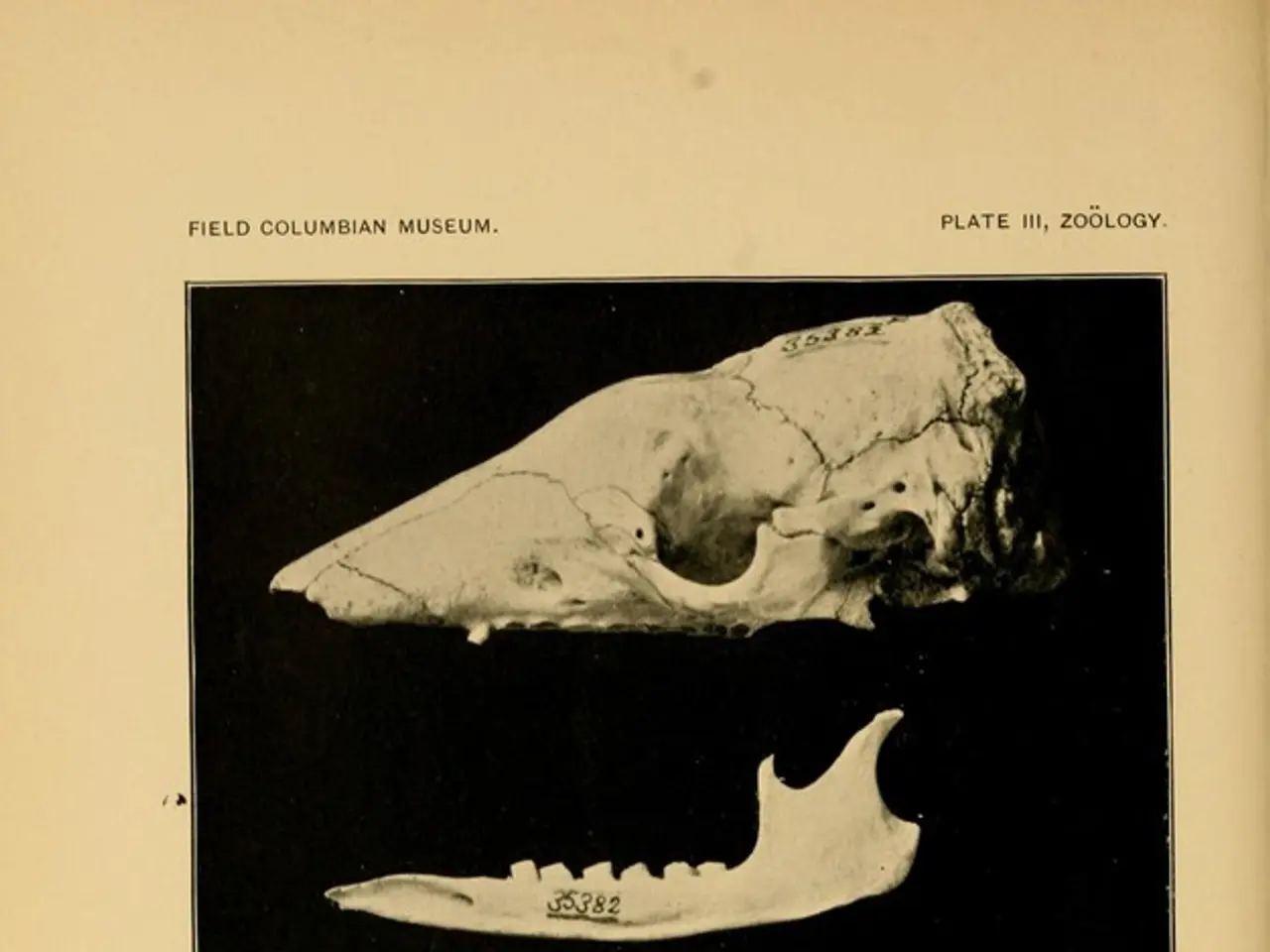Connection between caffeine and osteoporosis: An Investigation
New research suggests that caffeine could potentially impact bone health and the risk of osteoporosis in humans, but the impact appears to vary depending on several factors.
The Impact of Caffeine on Bone Health
Excessive caffeine intake (≥300 mg/day) may be associated with lower bone mineral density (BMD) and increased osteoporosis risk, particularly in postmenopausal women with certain genetic variations in the vitamin D receptor gene. However, more recent large clinical studies and meta-analyses show a complex picture where moderate coffee consumption (around 1.5 to 2 cups or about 166.5 mg caffeine daily) may be associated with a reduced risk of osteoporosis compared to very low caffeine intake.
Animal and small human studies suggest that caffeine may impair osteoblast function and calcium metabolism, which can reduce BMD. Some evidence also suggests that caffeine interferes with mineral absorption (such as iron) and could impact bone mineralization negatively with heavy, chronic intake.
Recommended Daily Caffeine Intake
Studies suggesting a risk tend to define high intake at around ≥300 mg/day. Moderate intake, around 1.5 to 2 cups per day (approximately 166.5 to 200 mg caffeine), appears to be safe or potentially beneficial for bone health based on recent findings. Limiting caffeine to under 300 mg/day is prudent for those at risk of osteoporosis, especially postmenopausal women with relevant genetic predispositions.
Individual Factors and Caffeine Intake
Effects may vary by ethnicity, age, smoking, and other factors, meaning individual risk differs. For instance, children and older adults can experience higher rates of bone diseases and may need to limit their caffeine intake.
The Role of Calcium and Vitamin D
Getting the recommended daily amount of calcium and vitamin D can counteract the potential negative effects of caffeine on bone health. The RDA of calcium for various age groups ranges from 1,300 mg/day for adolescents to 1,200 mg/day for individuals over 70. The RDA of vitamin D is 600 IU/day for all age groups, except for individuals over 70 and pregnant or lactating individuals, for whom it is 800 IU/day.
Conclusion
Keeping caffeine consumption moderate (up to about 300 mg/day or less) is recommended to minimize any potential negative effects on bone health and osteoporosis risk, with attention to individual factors like genetics and menopausal status. Excessive caffeine may impair bone formation and calcium metabolism, but moderate amounts may not pose harm and could even be protective in some populations.
References
- [1] Genetic factors and >300 mg/day intake: lower BMD, osteoporosis risk increase in postmenopausal women
- [3] Animal and small clinical studies: caffeine impairs osteoblast activity and calcium metabolism
- [4] Heavy caffeine use can reduce mineral absorption, affecting bone health
- [5] Moderate intake (~166.5 to 200 mg/day) linked to reduced osteoporosis risk in large studies
- [6] During puberty, adolescents experience quick growth because of maximal calcium deposition in the bone. It is unclear whether caffeine affects bone growth and strength in children and adolescents.
- [7] People with osteoporosis have low bone mineral density and bone mass, placing them at increased risk of bone fractures.
- [8] Older adults, both males and females, are at risk of osteoporosis due to factors such as taking certain medications, having a family history of osteoporosis, having low levels of certain hormones, experiencing low calcium and vitamin D diet throughout life, having certain medical conditions, such as arthritis, anorexia nervosa, or intestinal diseases.
- [9] The RDA of calcium for individuals aged 9-18 is 1,300 mg/day, for 19-50 it is 1,000 mg/day, for individuals aged 51-70 (male) and female over 51 it is 1,000 mg/day, for individuals over 70 it is 1,200 mg/day, for pregnant or lactating individuals aged 14-18 it is 1,300 mg/day, for pregnant or lactating individuals aged 19-50 it is 1,000 mg/day. The RDA of vitamin D for all age groups is 600 IU/day, except for individuals over 70 and pregnant or lactating individuals, for whom it is 800 IU/day.
- [10] The recommends that pregnant people limit their caffeine intake to 200 milligrams (mg) per day.
- [11] Caffeine can affect bone growth in animals.
- [12] Small quantities of milk can offset the possible risks of caffeine. Adding 1-2 tablespoons of milk to the diet may be enough.
- [13] The does not recommend caffeinated drinks for children and adolescents.
- [14] Green tea polyphenols (GTP) may prevent osteoporosis and improve bone mineral density and slow bone loss, but the evidence supporting the effects of drinking tea for preventing osteoporosis is inadequate to confirm its benefits.
- [15] High caffeine consumption may be associated with increased calcium loss, but it is unclear whether these effects contribute to osteoporosis.
- Moderate caffeine consumption may be beneficial for bone health, reducing the risk of osteoporosis, as suggested in some large clinical studies and meta-analyses.
- Excessive caffeine intake, particularly in postmenopausal women with certain genetic variations in the vitamin D receptor gene, is associated with lower bone mineral density and an increased risk of osteoporosis.
- Science suggests that caffeine may impair osteoblast function and calcium metabolism, potentially reducing bone mineral density, which could in turn increase the risk of osteoporosis.
- Adequate intake of calcium and Vitamin D can counteract the potential negative effects of caffeine on bone health, helping to maintain bone health and reduce the risk of chronic diseases like osteoporosis.
- Osteoporosis, a common chronic disease characterized by low bone mineral density and increased risk of bone fractures, can affect individuals of different ages, ethnicities, and health conditions, particularly older adults and postmenopausal women.




